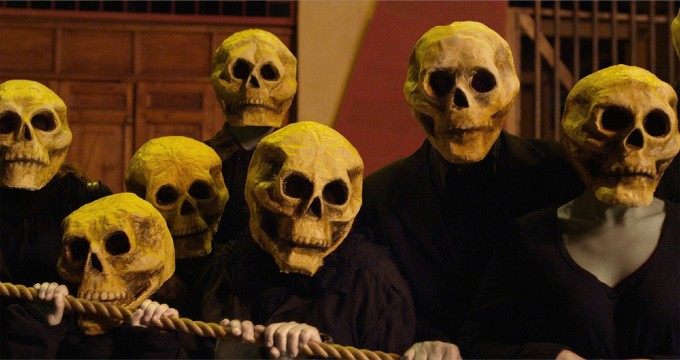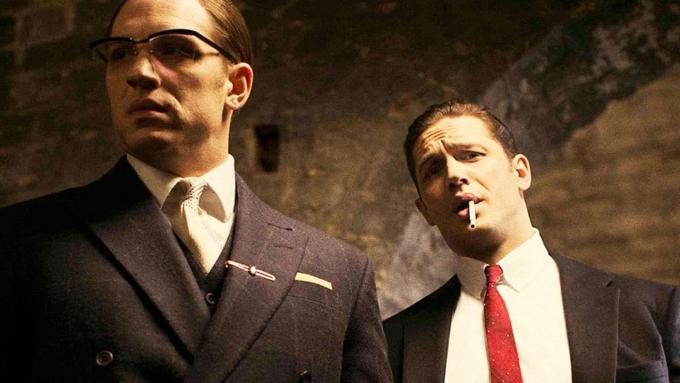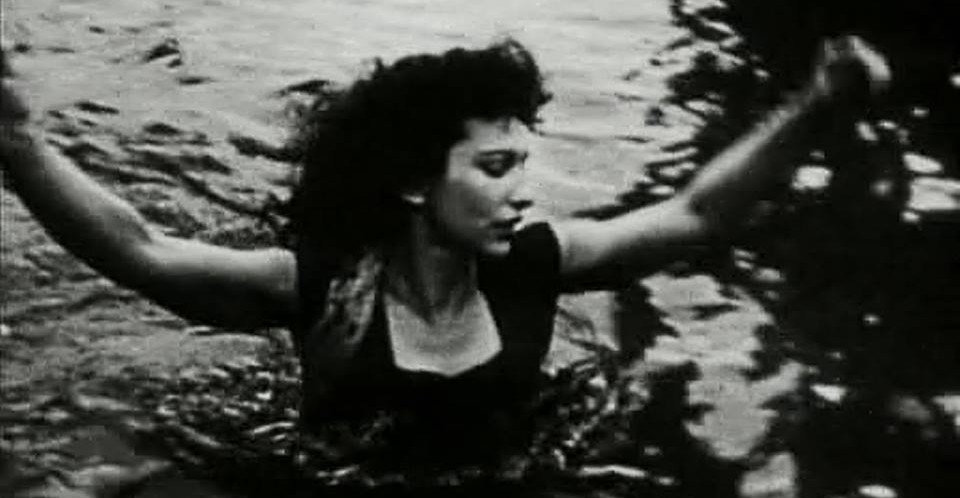
Month: September 2015
The Dance of Reality (Alejandro Jodorowsky, 2013)

Feeling all at once his most flippant work, and the one to be taken most seriously of all, Jodorowsky’s The Dance of Reality takes the surrealist semi-autobiographical route of the last number of Takeshi Kitano features, whilst ending up focusing considerably more on the tale of his father, abusive and hapless bourgeois communist Jaime than on young Alejandro himself. Jaime is slowly transfigured over the course of the narrative from Nom-de-Père monstrosity to a figure who might have stepped out of an Artaud-directed production of Les Mains Salles, to a figure of surprising and moving redemption.
Watching it, as I did, as the second feature in a double bill with Santa Sangre I couldn’t help but be struck by Jodorowsky’s consistent reflections on processing guilt in the face of sins of the father (and, indeed, mother). Considering his own childhood existence as the abused and alienated end result of spousal rape, it’s hardly a surprise, though made all the more poignant by his continued trend of casting his own offspring in the lead roles – The Dance of Reality being the first of his films to star three generations of Jodorowsky’s, including himself, as himself.
Genuinely funny as it regularly is, perhaps the most pleasantly amusing element of Reality is the way in which it acts as a biopic, subtly referencing – as far as I could tell – all of Jodorowsky’s back catalogue. Just as other films about an artist’s life regularly invent characters and circumstances the filmmakers assume may have influenced iconic moments in their oeuvre, Jodorowsky adds such tongue-in-cheek speculation himself. It may be true to state that Reality is not so much surrealist as it is magic-realist; symbolist, even. On this more subdued, linear plane, Jodorowsky allows his philosophy to rise to the surface with relative clarity: whether the depicted events in Reality happened in the most literal sense feel quite irrelevant to the question of whether they’re true. As is stated in the film itself, truth is the path to God – a path Jodorowsky, now apparently 85, is clearly ever more aware of walking.
Reality is not perfect, and the earlier Jodorowsky films it nods to throughout all have considerably more re-watch value and are, without a doubt, more fun. However, this is a very good, earnest and honest film from one of the true masters of psychedelic cinema. I am grateful to have finally seen this film.
***1/2
Legend (Brian Helgeland, 2015)

Legend is either a truly fantastic star vehicle, or a fairly by-the-numbers gangland biopic. I prefer to think of it as the former, though the Sunset Boulevard-esque narration from Frances (Emily Browning), existing as it does on a see-saw between unnecessary and obnoxious, does rather coerce me at points to see it as the latter. Strong performances from pretty much all involved, inevitably overshadowed by Tom Hardy’s exhilarating, if slightly cartoonish, twofer performance (I also cannot shake comparisons from my mind between his Ronnie Kray and Peter O’Hanara-hanrahan from The Day Today), although I believe that Paul Bettany’s role in the film is perhaps all the more transformative.
A lot of very nice direction and cinematography, though not much of it original – many shots felt directly lifted from GoodFellas and The Long Good Friday – both of which are films that strike me as having considerably more re-watch value – Legend is a standard 3-star film that, when I first reviewed it, gained an extra half on the basis of the aesthetic positives of Hardy’s attractiveness. However, as I remember just how pointlessly drawn out the final act was, and the ripeness of Browning’s narration, I feel inclined to remove it.
***
